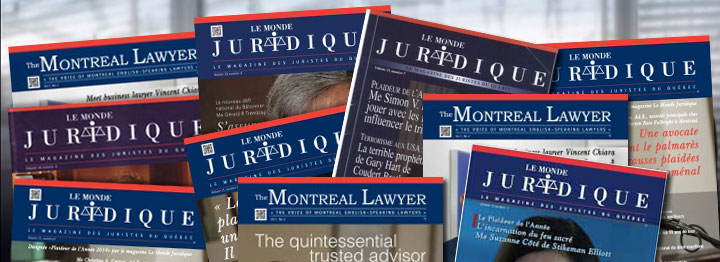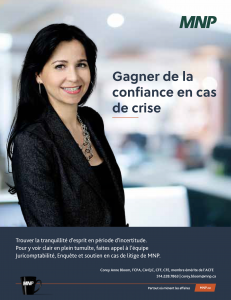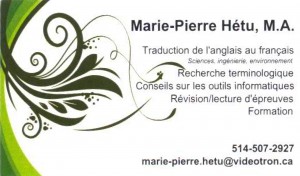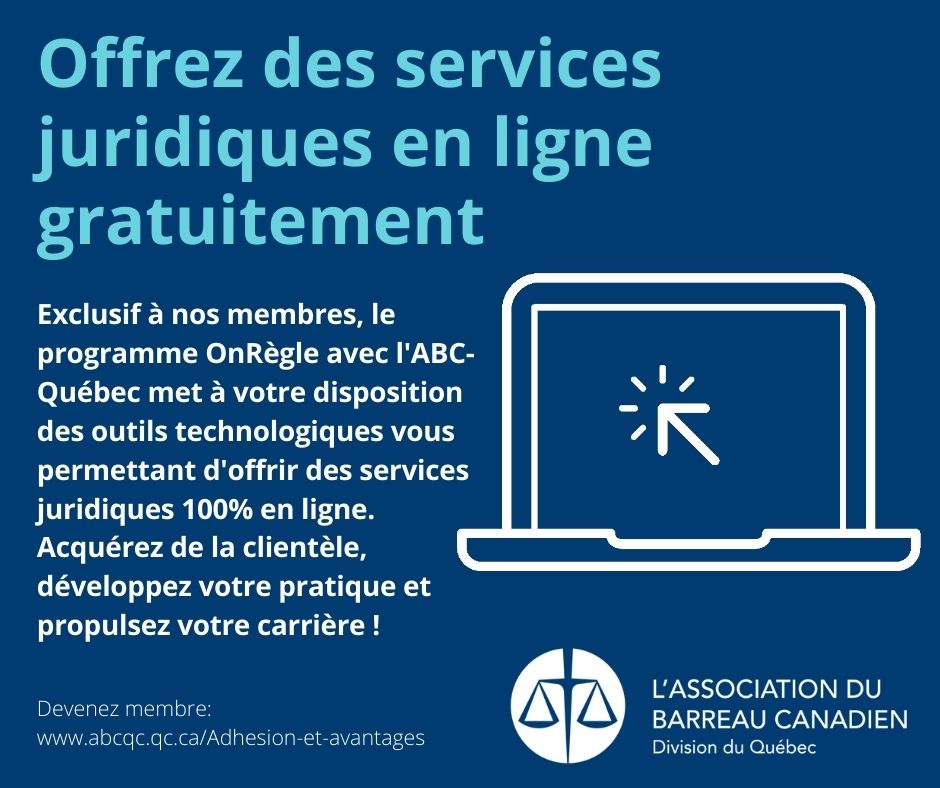Translation of Response by Joan Clark, O.C., Q.C., Ad.E. to Honour accorded to her by the Law Graduates Association (ADDUM) of the University of Montreal, November 29, 2017
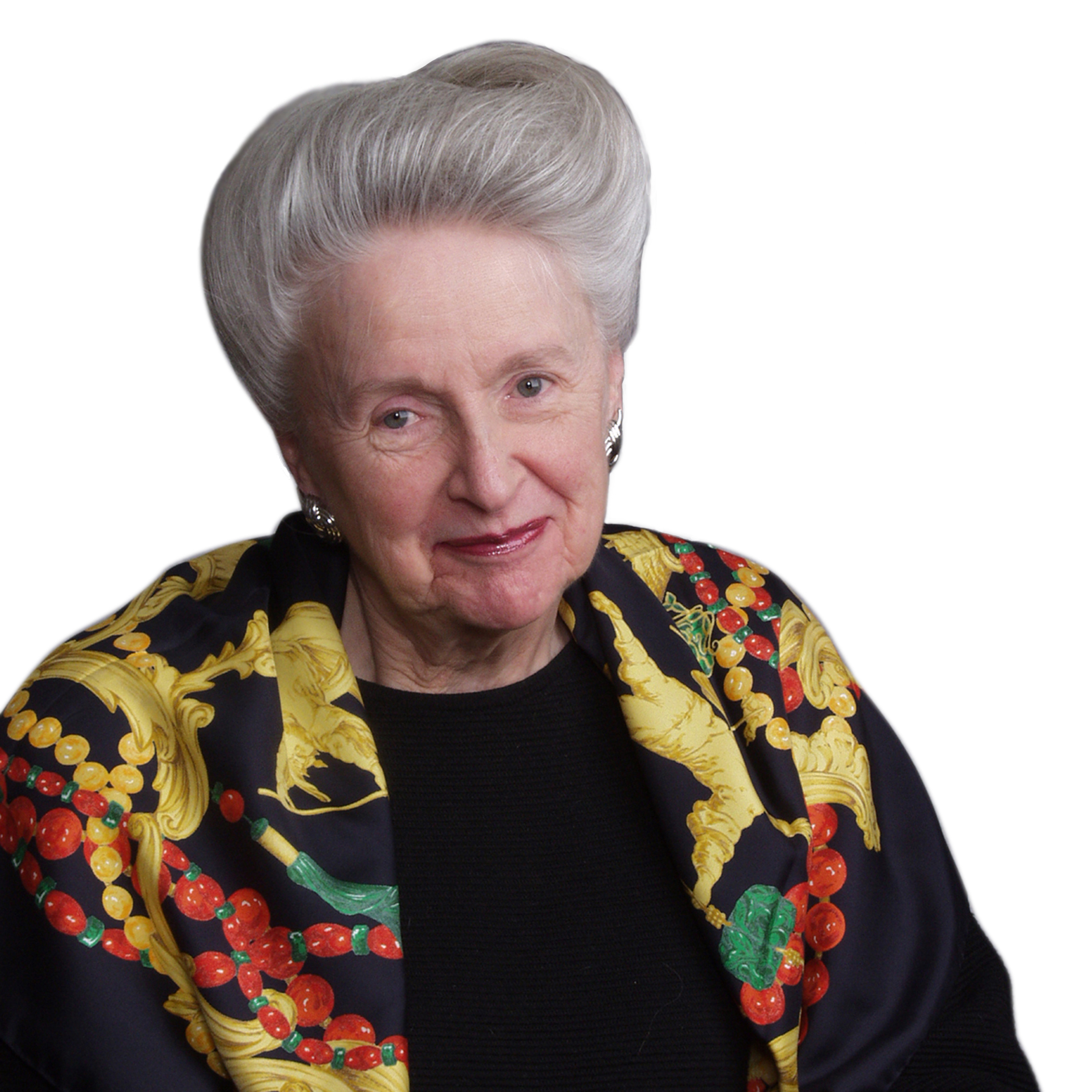
Madam Chief Justice of the Court of Appeal
Mr. Chief Justice of the Superior Court
Mr. President of the Chamber of Notaries
Mr. Dean of the Faculty of Law
Dear colleagues, dear friends
I wish to express how much I am touched by your honouring me this evening, whether merited or not. To receive this honour from the Association of Law Graduates of my alma mater, where I spent four happy and fruitful years more than half a century ago, makes me very grateful and I thank you with my whole heart, and in all humility.
Allow me to explain how it came about that I, an Anglophone, with close ties to McGill University, came to study law at the University of Montreal. My mother was a graduate of McGill with a bachelor’s degree in Science in 1925; my father, who had a PhD. from Harvard, was then chairman of the department of geology at McGill; and in 1950 I had received my B.A. from McGill. It had already been decided in the family that I would study law, and my parents were of the opinion that that should be at the University of Montreal. I had no opinion myself, and simply said “GOOD IDEA”. Perhaps my parents thought it would be a way for me to be able to practise my French, because in those days when an Anglophone tried to converse in French with a bus driver or a clerk in a store or almost anyone in the public, the reply was always in English, which is no longer the case today. One of several changes over the years.
In 1950, to attend the U. of M. was a turning point in my life. For an Anglophone, to study law at the University of Montreal was quite rare. During my first year, my second year and my third year, I was the only Anglophone, male or female, in our class – which was a big advantage for me. In my fourth year, there were only 2 or 3 Anglophones.
In my first year, there were 110 students in our class, of whom about a dozen were women. I am told that today the first year class in law has about 500 students, of whom 62% are women. Already an important change.
In my day there was an initiation procedure which no doubt does not exist today. The women students were put on sale, and each was sold to the male student who paid the highest amount, probably less than a dollar. I was purchased by a second year student, named Philippe Gélinas, who was the most charming and gallant gentleman possible, and who acted as my godfather during the following 3 years.
In the year 1950, Montreal had a reputation among Anglophones as Sin City, full of corruption and other vices. Those were the days of Mayor Drapeau and his saviour Pacifique Plante. We students, always progressive and reformers, organized parades in the City to support Pax Plante in his efforts – which succeeded in cleaning up the City, and that is how to this day there is no longer, or perhaps very little, corruption in Montreal.
Our professors included the impressive dean Maximilien Caron with his magnificent voice, professors Roger Comtois, Albert Mayrand, André Bachand and many others who taught us in different fields of the law, including the civil code, inspired by the Napoleonic Code. But there was an article in this code which troubled me. Concerning marriage, in 1950 there was no divorce; our code declared that marriage was dissolved only by the natural death of one of the spouses. However, the code provided for “separation de corps”, or separation from bed and board. I will read to you article 187 which existed in 1950: A husband may demand the separation on the ground of his wife’s adultery. PERIOD. And on the other hand, according to article 188, a wife may demand the separation on the ground of the husband’s adultery, COMMA, when he keeps his concubine in the common home. Happily, by an amendment, 4 years later the phrase after the comma was removed, and quality between the sexes was established. Another change, this one for the better.
After receiving my licence en droit in 1953 and being admitted to the Bar in 1954, I received some offers of employment , but my mother suggested that I take A YEAR OFF and I said “GOOD IDEA”, and spent a tranquil, domestic life in my family, with my grandmother whom I adored and who had come to live with us. A year later my mother suggested I look for employment, and again I said “GOOD IDEA”. But it had become difficult, it was the wrong time of the year. No firm needed a young lawyer. I hesitated to approach the office of Me André Forget, who had taught us intellectual property at the University, because his was a very big firm, with more than 20 lawyers, said to be the largest in the Commonwealth. But finally, with no other choice, I requested an interview with Me Forget who was in favour of my employment by his firm. There were problems, – this office was composed exclusively of men, and the committee hesitated to employ a woman. During the interviews, I was asked questions, considered inappropriate today, as to my intentions regarding marriage, if I were engaged, etc. Finally I received an offer at $300 per month, which I accepted, but the offer was on the condition that I would never plead in court. But in spite of this condition, overlooked by Me Forget, within 2 weeks of my employment, he sent me to plead a case in the Court of Appeal, following which I appeared regularly before the courts. After a trial period, I was accepted as a member of the Firm, and my name was painted in black letters on the frosted glass panel in the firm’s front door; it was the 30th name, of which I was so proud. Today, the current successor of that firm has hundreds of members, if not more.
During all of my career with Montgomery, McMichael, Common, Howard, Kerr, Cate . . . .et al, and its successors under other names, I believe I was never the subject of discrimination because of my sex. But it was different in the case of the social clubs. Our firm held monthly meetings at the St. James Club where there was a tradition that ladies should enter by a separate door, a secondary door. When I became a junior associate, I was invited to attend, but by entering through the separate door. I accepted this situation until young associates, younger than myself and male, entered by the main door, leaving me to enter by the secondary door. This had become unacceptable. I missed several meetings, but at last I called the club manager to find out if there really were such a rule. I was assured there was not, and that I was welcome to enter through the main door, which I then did. But I admit that when I used the main door for the first time, and mounted the big staircase, while the members, sitting, reading their newspapers, gazed at me with a suspicious look, I understood the feeling that must have been experienced by Rosa Parks when she remained seated in the front of the bus.
As to the Montreal University Club, in 1986 there was a list of requirements to become a member, of which the first was to be a male graduate of a university or college. In spite of this requirement the distinguished neurosurgeon William Feindel proposed my candidacy as member, seconded by William Grant of our Firm. I was a graduate of two universities but I did not fulfill the condition of being a male graduate. It took two meetings of members of the University Club to change the rules and admit women, because the first meeting approved the change by a simple majority, and a second meeting was needed to obtain the two thirds majority required by the Club rules. Another change.
When I was preparing my remarks for this evening, the changes I have mentioned, and many others, caused me to reflect on a passage in a book entitled The Sixth Extinction by the renowned paleontologist, Richard Leakey, which appeared in 1995.
It is a passage that I read to my father, also a paleontologist, shortly before his death at the age of 102, and which I have always remembered. The author spoke of looking at the past through a window, in his case a paleontological window, but this can apply to a window through which one looks at anything in the past.
The author wrote:
“If there is one single impression you gain from what is to be seen through this window it is encapsulated in the simple word change. Life’s flow is in a constant dynamic change. Life seen through a paleontological window is like a kaleidoscopic image, where change is not only natural but inevitable.“
Also in our lives, change is inevitable.
In closing, I reiterate my profound gratitude for the honour that the Association of law graduates of the University of Montreal has accorded me, and my appreciation for your presence this evening.


